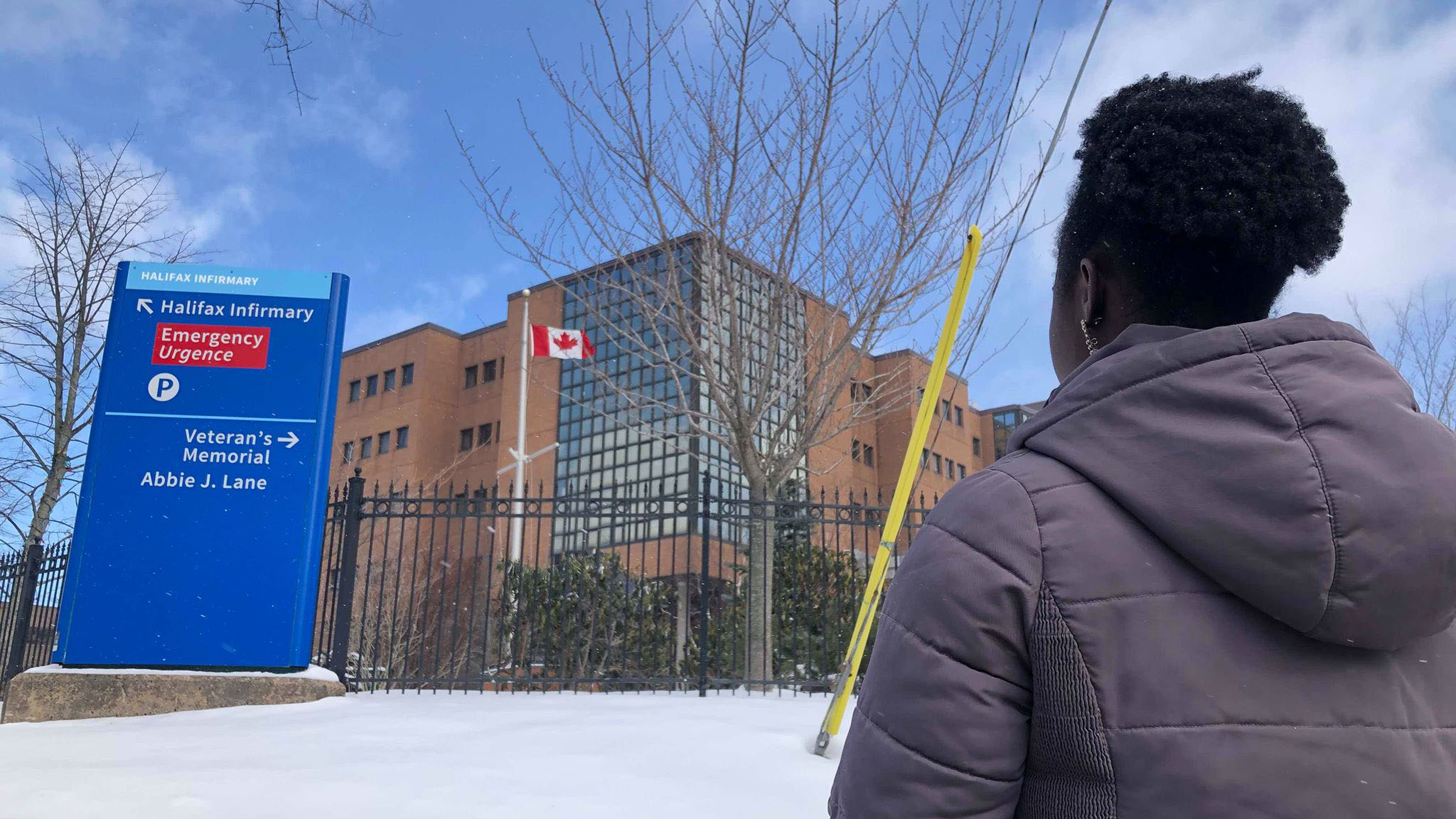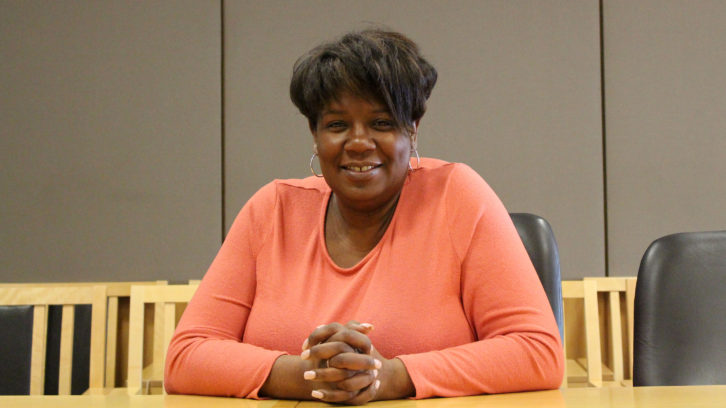Lack of data on African Nova Scotian Health a problem, say professionals
Experts say they need race-based data collection to inform their research and secure funding

caption
Experts say African Nova Scotians face particular health barriers.Researchers say African Nova Scotians experience some health conditions differently from the general population, but a lack of race-based data makes those issues hard to tackle.
Sharon Davis-Murdoch, co-chair and director of the Health Association of African Canadians (HAAC), says knowledge of African Canadian health has grown since the HAAC formed 20 years ago, but gaps in data collection still present problems.
“You would not see very much reference at all to black health research, black health issues, and absolutely, as is still the case, health data with race and language identifiers pertaining to people of African descent,” she said in an interview.
Davis-Murdoch said there is anecdotal evidence that African Canadians are more susceptible to certain health conditions, such as diabetes, hypertension, and prostate cancer. But without the data to back up that evidence, it’s hard to take action.
Crystal Watson, a PhD candidate in Health at Dalhousie University, said a lack of knowledge about how people of African descent show symptoms for certain conditions is particularly problematic in Canada. This is because visible minorities are classified under one umbrella in data collection, unlike in the United States where data is separated based on race.
Watson said this means existing data fails to illustrate the complexities of how specific conditions affect individuals from different backgrounds.
Difficulties in Diagnosis
Watson said a lack of knowledge about how symptoms present in people of African descent makes it difficult to diagnose them properly.
That’s because symptoms don’t always present in the same way across different demographics.
Health-care professionals are trained to identify a particular set of symptoms when diagnosing conditions. But if people of African descent express symptoms differently, there is a possibility that professionals will not recognize those symptoms or associate them with the right condition.
“Those particular symptoms or challenges that you should be looking for with respect to that particular health condition were identified in a certain population group,” Watson said. “And most likely not with a group of persons of African descent.”
Barriers to Research
Researchers are calling for more health research specific to people of African descent. But because there is little data showing how the African Canadian population is affected by health issues, making a case for more research in the area becomes difficult.
Watson says without data to form the basis for her research, it’s hard to get the greenlight on projects and receive funding.

caption
Crystal Watson says a lack of race-based data presents barriers to research.“You tend to get questioned on ‘well how do you know, where’s the data?’ or ‘how do you know this population is going to benefit from that?’” she said. “Well I don’t know, because I can’t get the data ‘cause it’s all clumped together.”
Keisha Jefferies, a PhD candidate in nursing at Dalhousie University, has run into similar challenges in her work.
Jefferies’ research focuses on the leadership experiences of African Nova Scotian nurses. She finds the amount of available race-based data limiting.
“In the United States there’s a great contrast. They acknowledge they have a different race image and they collect race-based data. We can look at this data and say ‘wow the research is really showing black people experience higher rates of heart disease or colon cancer,’” she said. “But in Canada we can’t reproduce that because we don’t have the information because we like to think we’re an equitable society and country but in fact we’re not.”
A History of Mistrust
The push for data collection can become complicated, however, because of a damaged relationship between the health-care sector and people of African descent.
Watson cited the Tuskegee syphilis experiment and the use of Henrietta Lacks’ cells as examples of times where people of African descent were subject to health-related research without proper informed consent.
Outside the health sector, African Nova Scotians can be wary of data collection because of the province’s history with street checks.
Jefferies said a history of mistrust means black Nova Scotians are less likely to seek care, making them more susceptible to prolonged health issues.
“You feel apprehensive to want to go in for care,” she said. “You also feel as though your health-care provider really doesn’t understand your health needs. So that creates a lot of mistrust, one, and also there’s a lot of possibility for harm.”
Experts say better representation in the health sector is one way to build trust between African Nova Scotians and the health-care system.
“We need to push to see black people in these programs represented to provide that care that will bring in and make more people feel comfortable accessing care,” Jefferies said.
Positive Steps
Davis-Murdoch said that while there are still many challenges for African Nova Scotians in the health-care system, there have been some positive steps forward that have come as the result of years of advocacy.
Among those accomplishments is the implementation of the Nova Scotia Brotherhood Initiative, a program that offers culturally-specific health clinics for African Nova Scotian men.
“It just goes to show you how long we survived and the determination to have a place where we identify issues and bring people together and partner on projects and research,” she said.
Davis-Murdoch added that she would like to see the implementation of a “sisterhood initiative,” which would meet similar needs for African Nova Scotian women.
Jefferies also highlighted the positive work being done in the province.
“As many challenges as there are,” she said, “there are individuals and groups who are committed to addressing the systemic, the institutionally embedded racist practices.”
Rhonda Atwell is a health promotion specialist who was project coordinator of Nova Scotia Health Authority’s African Nova Scotian Health Strategy during its development. The strategy is now being vetted and will aim to address problems African Nova Scotians face when dealing with health care.
In an interview, Atwell confirmed there are gaps in health data on African Nova Scotians.
She agrees that there is already anecdotal evidence to suggest African Nova Scotians have different health needs that warrant research and that collecting data could make it easier to apply for research funding.
Atwell said that in developing the health strategy, NSHA heard concerns from black communities about how the data would be used. She said she knows African Nova Scotians have a difficult relationship with data collection. The new strategy will take these concerns into consideration when collecting data.
“We don’t want to wait for data, but we want to be sure we’re collecting it responsibly.”
NSHA hopes to launch the strategy in the spring.
About the author
Ethan Lycan-Lang
Ethan Lang is a student journalist at the University of King’s College. Originally from the Annapolis Valley, he spent a few years on the Rock...
